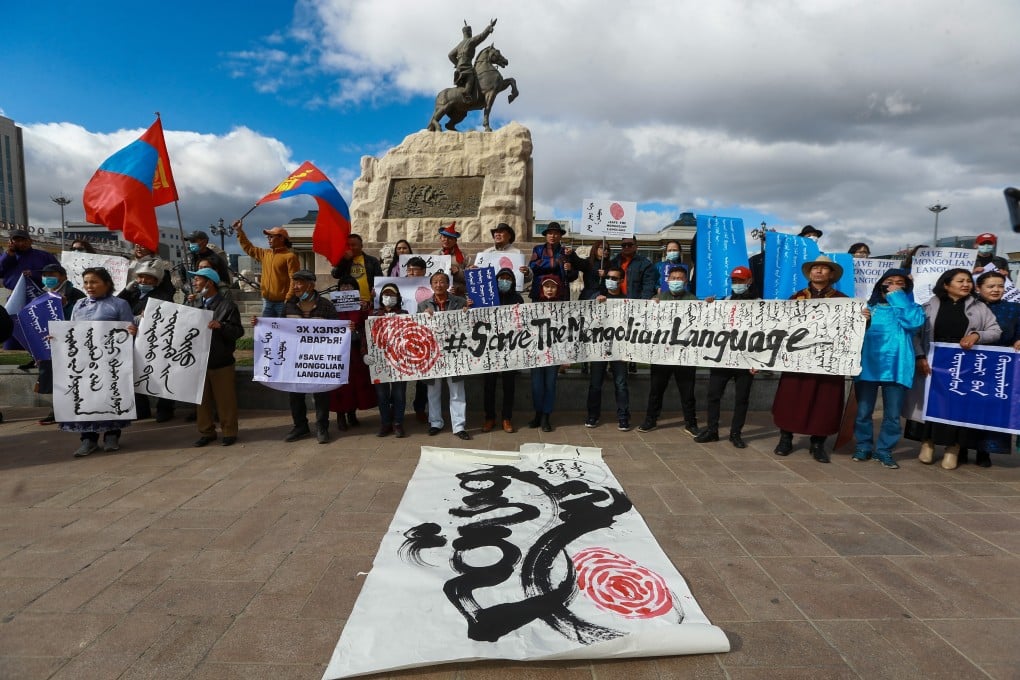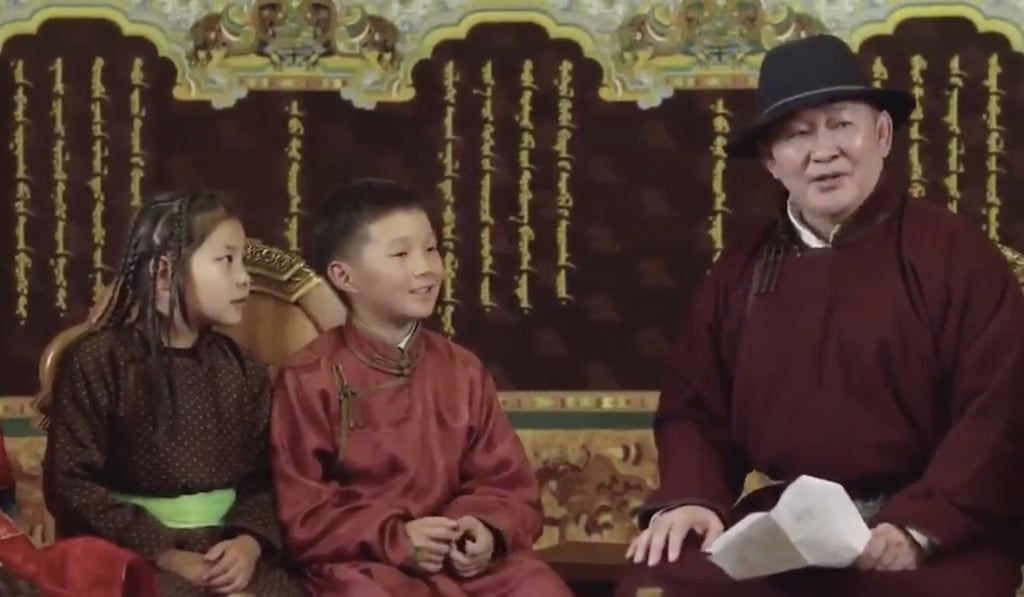Advertisement
Mongolia: locked between China and the language of identity
- Mongolia’s president has promoted traditional script and culture but has so far not spoken out directly about protests across the border against greater use of Mandarin in the classroom
- Observers say the country is caught between its economic reliance on its neighbour and its desire to promote its mother tongue
Reading Time:4 minutes
Why you can trust SCMP

As the new school year started in Mongolia on September 1, President Khaltmaagiin Battulga appeared on national television in traditional clothing and with a group of children reciting a poem.
Battulga was teaching the “first lesson of the year” against a background of traditional Mongolian standing script on a day that he had also designated the Day of the Mother Language.
The poem was about the standing script and was written by Secencogtu from the neighbouring Chinese autonomous region of Inner Mongolia, where parents were refusing to send their children to school in protest against Beijing’s decision to use Mandarin instead of Mongolian in some subjects.
Advertisement
The boycott followed weeks of protests and a crackdown in the autonomous region, igniting public anger and protests across the border.
Battulga has not explicitly raised the language issue with China, but the choice of poem was deliberate, reflecting the interests the government must balance with its biggest trading partner – which accounts for 90 per cent of Mongolia’s exports – and concerns in Mongolia about cultural heritage.
Advertisement

Advertisement
Select Voice
Choose your listening speed
Get through articles 2x faster
1.25x
250 WPM
Slow
Average
Fast
1.25x